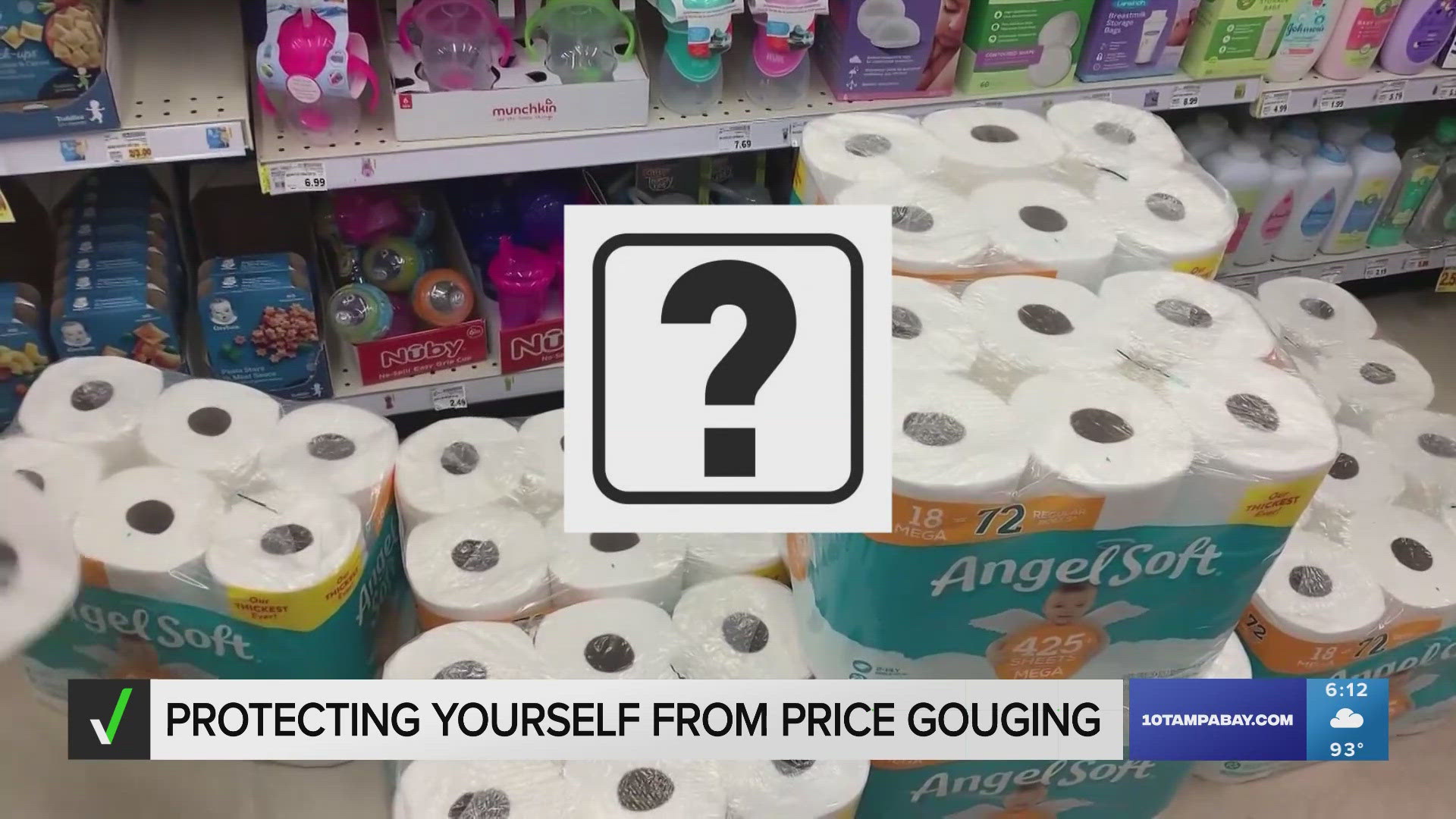ST. PETERSBURG, Fla. — Making sure you’re prepared in the event of a storm is increasingly critical as hurricane season ramps up.
That means buying storm-related supplies, knowing where to find sandbags, and making sure your hurricane plan is up to date in case you need to evacuate.
But as prices rise for items like gas and food, Steve S. in Brooksville emailed VERIFY asking when it counts as price gouging.
Is it price gouging, he asked, when a gas station near him raised prices by more than 50 cents overnight?
THE SOURCES
THE ANSWER
Florida law only prohibits price gouging in areas where a state of emergency has been declared.
WHAT WE FOUND
It is unlawful, according to Florida statute, to rent, sell, or lease essential commodities, dwelling units, or self-storage facilities at an “unconscionable price.” But Florida’s price gouging statute is only effective in areas where a state of emergency has been declared.
Gov. Ron DeSantis declared a state of emergency on Aug. 1 ahead of a tropical system that could impact much of the state this weekend, triggering state price gouging laws.
The current state of emergency applies to the following Tampa Bay area counties:
- Citrus
- Hernando
- Hillsborough
- Manatee
- Pasco
- Pinellas
- Polk
- Sarasota
Emergency declarations authorize activities that can help states and localities carry out essential services and activities ahead of and after a storm, according to Florida’s Division of Emergency Management.
How do I know if I’m being gouged?
Florida law compares the reported price of a good or service during the state of emergency to the average price charged over the 30-day period prior to the declared state of emergency, according to Florida’s Office of Attorney General.
If there is a "gross" disparity between the prior price and the current charge, it could be considered price gouging.
It's illegal for businesses to excessively hike the prices of essentials like water, ice, lumber, generators, gas, hotel rooms – anything that's needed during a declared state of emergency.
The law also covers services like tarping your roof to protect it before the storm and it applies to businesses and individuals.
It is not considered price gouging if the seller can justify the current price by showing an increase in the price of their supplies or market trends.
How do I report gouging?
If you suspect price gouging, Florida’s Attorney General advises you to obtain as much information as possible in the form of photographs of signs displaying the price, receipts, estimates, reservation numbers and prices, invoices, or bills.
Remember to include your name and contact information, the name and address of the company or individual you suspect of price gouging, a description of why you believe price gouging occurred and any documentation you may have.
You can report suspected price gouging to the Attorney General’s Price Gouging Hotline at 866-9NO-SCAM, through the official No Scam app or online.

